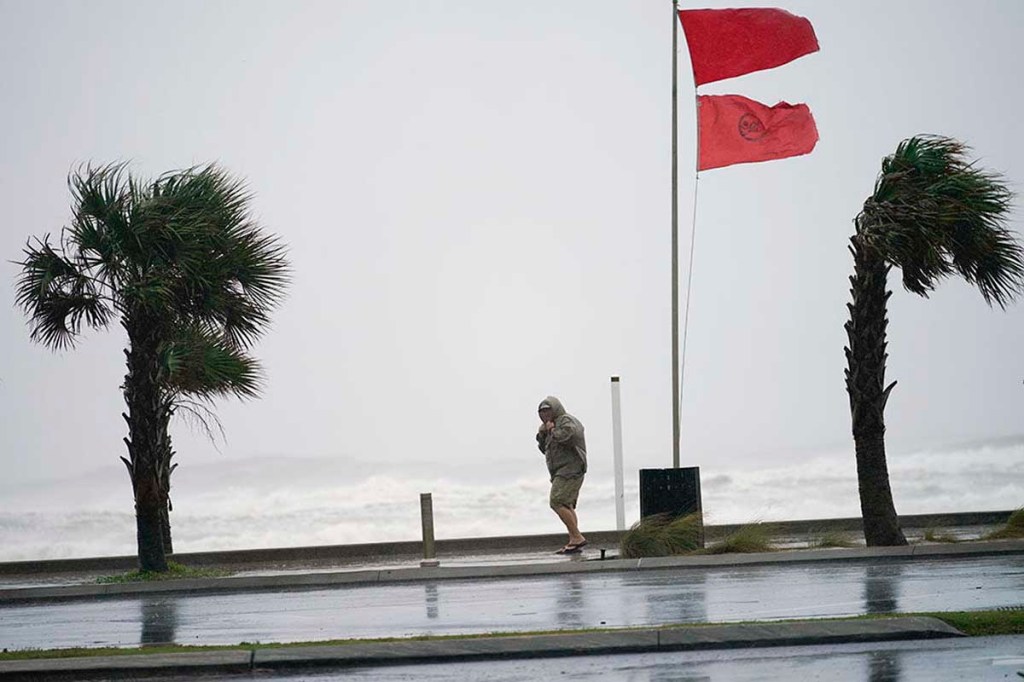EMA: Cullman likely to dodge Hurricane Sally’s worst
Published 7:00 pm Tuesday, September 15, 2020

- A man walks bear the gulf as Hurricane Sally moves in, Tuesday, Sept. 15, 2020, in Gulf Shores, Ala. Hurricane Sally, one of a record-tying five storms churning simultaneously in the Atlantic, closed in on the Gulf Coast on Monday with rapidly strengthening winds of at least 100 mph and the potential for up to 2 feet of rain that could bring severe flooding.
With beaches closed and South Alabama in a state of emergency, the slow-moving Hurricane Sally represents a real threat for people along the Gulf coast. But weather watchers believe the storm — expected to move through the state today and Thursday on a track south of Montgomery — will spare the Cullman area from its most severe effects.
Rain is the biggest threat from Sally, which is set to dump as much as 30’’ of local precipitation in areas east of its landfall path near Mobile Bay. But updates to the storm’s track late Tuesday moved its projected path through the state farther south than previously forecast, shifting the worst of the flooding risk to an area between Montgomery and Dothan, according to local Emergency Management Agency director Phyllis Little.
“It’s a slow-moving storm, and that means it’s mostly a rain event,” said Little late Tuesday. “Even after it comes ashore, it’s expected to only move between 4 and 7 mph. After landfall, you’re looking at 70 mph winds for most of the day Wednesday and into Thursday morning, so with the rain that it’s dumping, you’re gonna get a lot of trees down and power outages in South Alabama just from that.
“We’re expecting closer to half an inch of rainfall here, so it’s really more of a good soaking for our area and not a sever weather issue,” she added. “Northeast Alabama is expecting more like 1-2 inches, with some areas going even a little bit higher. But we’re not looking at severe wind levels here. Gusts may be about 25 mph, which is not bad, considering there’s a diminished risk of trees coming down since our rainfall totals won’t amount to a flooding event.”
While the state’s lower regions brace for a deluge that could last more than 24 hours, Little said local emergency responders stand ready to act, should their help be needed. “It’s not an all hands on deck situation where we are, but we’re watching and monitoring it. If someone from South Alabama requests assistance, we’re going to do our best to provide it.”
With recently-formed tropical storm Vicky churning in the far Atlantic, this year’s busy hurricane season has nearly exhausted the alphabetical list of 21 names designated by the World Meteorological Organization (WMO). After Vicky, Wilfred is the last name on this year’s list, before any further developing storms revert to the WMO’s convention of taking names from the Greek alphabet.
Although hurricane season officially last until Nov. 30, Little said September is typically its busiest month. “We’re in the peak of the season right now, so hopefully it’ll subside before we get too many more named storms,” she said.





